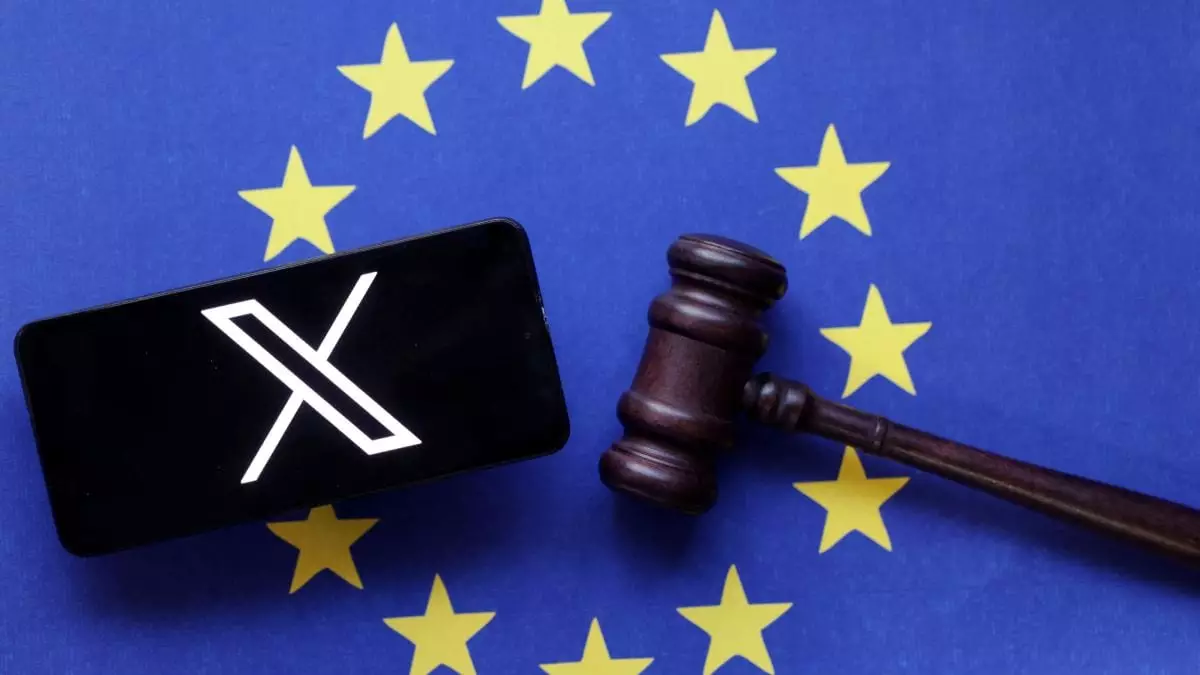The European Union (EU) is delving deeper into the operations of Elon Musk’s social media platform, X, amid growing concerns regarding its adherence to content moderation standards set forth in the EU’s Digital Services Act (DSA). This scrutiny arises at a critical juncture, as the platform faces accusations of failing to effectively manage illegal content and disinformation. The stakes are high, with potential penalties for violations reaching up to six percent of a company’s annual global sales.
The Nature of the Investigation
The investigation, initiated by the European Commission in December 2023, centers around allegations that X has not been transparent in its operations and has employed deceptive practices in its design. Henna Virkkunen, the Commission’s Executive Vice President, highlighted the ongoing assessment of whether the investigation’s scope should be expanded, indicating that the situation is fluid and warrants close observation.
Particularly alarming for regulators is the platform’s connection to significant political figures and movements. Recently, Musk has been known to endorse far-right personalities amid rising tensions surrounding elections in Europe. These endorsements are being examined for their potential impact on political impartiality on social media platforms, which is a core component of the DSA.
The issue is compounded by the context of recent political events in Europe, notably the annulment of a presidential election in Romania due to reports of foreign interference. Such occurrences have intensified scrutiny on platforms like X and TikTok, highlighting the tangible influence social media can wield over democratic processes. As the EU frets over external meddling in elections, the backlash against Musk’s actions could be viewed as a necessary step toward safeguarding electoral integrity within the union.
Complicating matters is Musk’s recent public engagement with political candidates, specifically a live-streamed conversation with Alice Weidel, a prominent figure of the far-right Alternative for Germany party. If it is determined that X has disproportionately amplified this conversation to provide an unfair advantage to Weidel, it could represent a significant breach of the DSA.
The repercussions of the EU’s findings could be far-reaching, not only for Musk’s X but also for the broader landscape of big tech companies operating in Europe. With the prospect of substantial fines hanging over non-compliant platforms, companies may be compelled to adopt stricter measures regarding content moderation and transparency. However, navigating the balance between moderated discourse and freedom of speech remains a contentious issue, making the enforcement of such regulations complex.
Moreover, Musk’s vocal opposition to EU regulations, coupled with his influential position in global digital discourse, raises questions about the effectiveness of the DSA. With the impending inauguration of Donald Trump—and Musk’s newfound relationship with the President-elect—there exists a possibility of increased lobbying from major tech firms aimed at lessening EU regulatory power.
The EU’s ambitious goals of regulating the digital landscape face daunting challenges as its laws are tested against the realities of international politics and industry dynamics. Trump’s ascendance may usher in a protective atmosphere for American tech giants, potentially undermining the EU’s regulatory intentions. Concurrently, figures like Mark Zuckerberg have already begun calling for a defense of U.S. companies against European fines, signifying a collective pushback from the tech industry.
Musk’s brash stance toward EU officials and his threats to contest unfavorable decisions in court add another layer of complexity to an already fraught situation. As he continues to engage publicly with these issues, the outcomes of the EU’s inquiry into X will likely set a precedent for how social media platforms navigate the intricate relationship between content moderation, political opinions, and regulatory compliance.
As the investigation into Elon Musk’s X continues, it underscores the critical intersection of technology and politics in the modern world. The EU’s efforts to maintain democratic integrity in the digital age will depend on its ability to enforce its regulations effectively, whilst navigating the international tech landscape characterized by influence, power struggles, and the ever-changing nature of free speech in the digital realm. The coming months will be crucial in determining not just the fate of X, but the future of digital governance in Europe as a whole.

